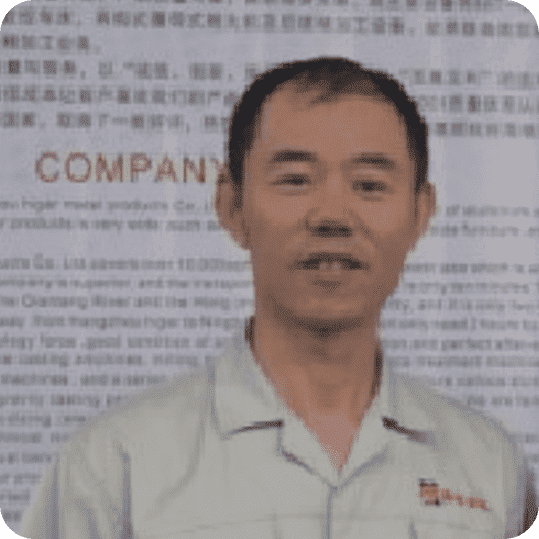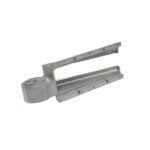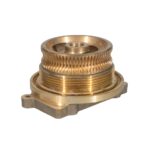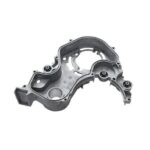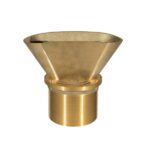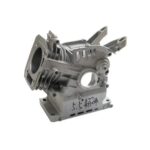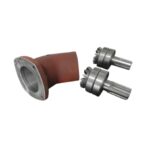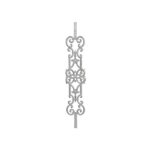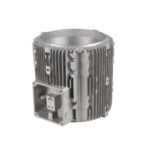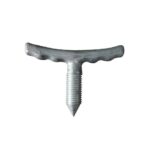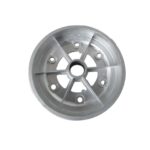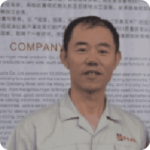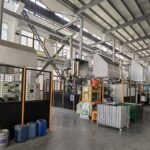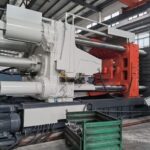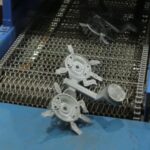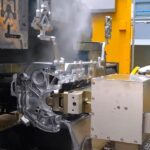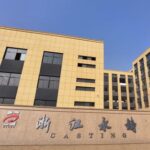After two decades of chasing molten aluminum through steel dies and sand molds, I’ve learned that the “cheapest per kilo” label can become a wallet-draining prank once scrap, leaks, and freight pile on. Below is the checklist I hand customers before they cut an RFQ—seasoned with late-night shop stories, real numbers, and the occasional scar from learning the hard way.
Process Basics in 90 Seconds
When buyers tour my plant, I start with the elevator pitch: HPDC uses 1 400–4 000 ton presses to fire alloy into hardened steel tooling fast enough to make your ears pop, while sand casting packs disposable molds around a pattern, waits for the pour to chill, then hammers and shakes everything apart. One thrives on thin ribs and micron-level repeatability; the other laughs at 100-kilogram compressor blocks and massive wall sections.
| Key Point | High-Pressure Die Casting | Sand Casting |
|---|---|---|
| Mold Type | Permanent steel die | Disposable sand mold |
| Typical Tolerance | ± 0.05 mm | ± 0.5 mm |
| Wall Minimum | 1.5 mm | 5 mm |
| Cycle Time | 30–90 s | 5–15 min |
| Part Size Sweet Spot | < 15 kg, thin | 0.1 kg – 3 000 kg, thick |
Cost Breakdown: Tooling, Cycle, and Finishing
Before the first chip flies, tooling already tips the scale. But watch how the math flips once volume rises and machining drops.
| Cost Bucket | HPDC (US$) | Sand Casting (US$) |
|---|---|---|
| Tooling | 25 k–120 k | 0.5 k–5 k |
| Cycle Labor / 1 000 pcs | Low (robot) | Medium–High |
| Machining Stock | 0.5–1 mm | 3–5 mm |
| Surface Prep | Deburr only | Blast, grind |
| Unit Cost (10 k pcs, 4 kg part) | 8.60 | 12.40 |
Tooling sticker shock fades quickly when cycle time and machining shrink—think of it as buying a money printer that pays for itself by the second year.
Durability & Mechanical Performance
A pump body that cracks mid-shift makes accountants cry louder than operators, so I chase porosity down to the last bubble. Fast cooling in HPDC refines grain and boosts fatigue life; slower sand cooling can create coarse dendrites but shines in thick sections that would hot-tear inside a die. My HPDC gearbox cover survives two million 120 Nm cycles; the sand-cast equivalent taps out around one million unless we add impregnation and beefier ribs.
Hidden Costs Buyers Often Miss in First Quotes
I’ve watched “bargain” sand jobs balloon after day-one leaks and oversized freight bills. Here are four line items your spreadsheet should include—and often doesn’t:
- Scrap from core shift or blowholes that machining uncovers late in the game.
- Impregnation costs to seal micro-porosity in pressure housings.
- Heavier parts adding 30–50 % to sea freight and forklift wear.
- Assembly rework when ± 0.2 mm fits wander outside tolerance windows.
Break-Even Point: Annual Volume vs. Total Part Cost
Volume is the switch that flips the cost graph. For a 4 kg housing with medium machining:
| Annual Volume (pcs) | HPDC Total Cost/pc (US$) | Sand Total Cost/pc (US$) |
|---|---|---|
| 2 000 | 18.70 | 14.80 |
| 6 000 | 10.90 | 13.10 |
| 10 000 | 8.60 | 12.40 |
| 30 000 | 7.10 | 12.00 |
The lines cross at roughly 8 000–12 k pieces per year—earlier if we multi-cavity the die or run a family of parts.
Lead-Time & Engineering-Change Flexibility
New HPDC tooling takes six to ten weeks, but insert swaps let me tweak bosses overnight. Sand patterns arrive in two weeks, ideal for prototypes, yet they wear, warp, or break every few thousand pulls—budget recurring pattern builds if you iterate often.
Alloy & Design Constraints
HPDC loves A380, A360, ADC12—low Mg, high fluidity. Throw 206 or 535 inside a die and you’ll blow seals or crack the tool. Sand, meanwhile, happily pours those “difficult” alloys for extreme strength or marine corrosion. Draft can dip to 1° in die; plan 2–3° for sand so the pattern lives to see tomorrow.
Sustainability & Energy Footprint
A surprise to many bean counters: my HPDC line guzzles energy per cast kilogram, yet it saves three times that in machining chips and re-melt. Sand plants burn less upfront but ship tons of single-use sand to reclamation or landfill unless they invest in an expensive loop. Your ESG team should weigh both sides of the ledger.
Supplier Vetting Checklist
- ISO 9001 with die-casting and/or foundry scope clearly listed.
- CT or high-res X-ray for HPDC; 3-D sand printing for complex cores.
- In-house machining so tolerance stack-ups don’t travel continents.
- Melt logs, recycled-content disclosure, and SPC charts on porosity.
22 % Cost-of-Ownership Drop on an Oil-Pump Housing
An oil-field client fought leaking sand-cast 319 housings at 9 000 pcs/year. We switched to HPDC A380, trimmed weight 18 %, cut machining 35 %, and slashed annual leak claims 60 %. The $48 k tool paid back inside 14 months, and CFO signed the PO for cavity number two with an actual smile.
Pick HPDC when volume is healthy, fits are tight, and every gram and second matter; choose sand for giants, low runs, or exotic alloys. Still torn? Send your drawing and annual forecast—I’ll run a dual cost curve, free of charge. Email yongzhucasting@gmail.com, and I’ll reply faster than molten metal fills a die.
Quick FAQ
Can HPDC parts be welded in the field?
Yes, if vacuum-assisted and cleaned; expect lower elongation than sand.
What porosity class is realistic for sand vs. die castings?
HPDC can hit ASTM E505 level 2; sand usually levels 3–4 unless impregnated.
How does recycled content change cost?
Both processes handle ≥50 % scrap; melt control is tighter in HPDC, but alloy premiums are similar.
Searching for High-Quality for Cast Aluminum Parts Supplier?
You’ve come to the right place! Yongzhu Casting is a certified die casting manufacturer with over 20 years of expertise in the industry.
We have successfully completed numerous die casting projects for Aluminum casting parts, particularly in your industry.

Zhejiang Yongzhu Casting Technology Co., Ltd.
Location: Zhejiang, China
Company type: Manufacturers, Producers, Wholesalers
Year Founded: 2004
Main Products: Aluminium die casting, Mold Making, Die Casting, Sand Casting, Gravity Casting
Leading Chinese producer Yongzhu Casting is formerly known as Hangzhou Higer Metal Products Co., Ltd., was established in 2004.
With 20 years of experience in the industry, we are a specialized manufacturer in Aluminum casting and Machining.
Our products are widely used in various applications such as Automotive, Energy, Lighting, Medical, Home Furnishings, Machinery & Equipment etc. Below are our advantages:
Design Review & DFM Support
Our professionals will evaluate your designs and provide suggestions for cost savings. Additionally, we offer Design for Manufacturing (DFM) assistance and conduct mold flow analyses to facilitate efficient production.
State-of-the-Art Manufacturing Equipment
Our facility is equipped with advanced hot-chamber and cold-chamber die casting machinery for aluminum and zinc production.
We also utilize high-precision CNC machines in a temperature-controlled workshop, featuring 3-Axis, 4-Axis and 5-Axis setups to manage any project you have.
Rigorous Quality Control Measures
Our dedicated quality control team ensures that all parts meet the highest standards of quality and consistency. We employ high-accuracy measurement instruments, including CMM, spectrometers, and X-ray detectors.
Comprehensive Surface Treatment Options
We provide a variety of surface finishing techniques for your precision die casting components. Our in-house services include cleaning, polishing, anodizing, shot blasting, and painting.
Flexible Project Acceptance
While larger manufacturers often shy away from low-volume projects, and smaller ones may struggle with quality, Yongzhu Casting stands apart. We prioritize customer satisfaction and willingly accept high-mix, low-volume projects like yours.

